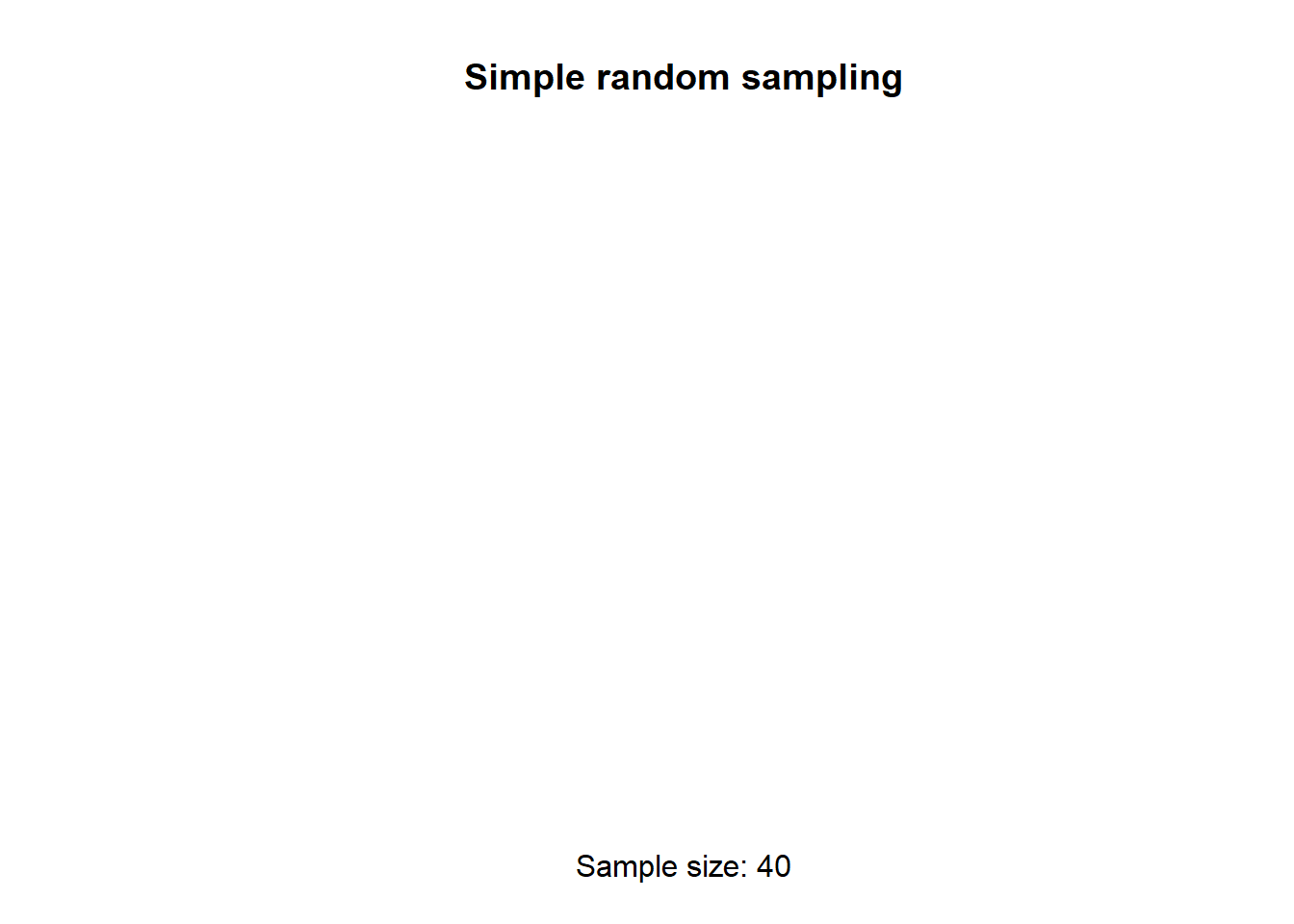2.4 Simple random sampling
![]()
A simple random sample is chosen from a list of all members of the population (the sampling frame) using tables of random numbers or websites like https://www.random.org. A smaller version of this webpage, which only generates one number at a time, is shown below; just press Generate. The numbers generated by this widget come from the true random number generator at RANDOM.ORG. (The webpage generates as many numbers as you want all at the same time.)
Often, establishing the sampling frame is difficult or impossible, and so finding a random sample is also difficult.
For example, to study a simple random sample of wombats (Yang et al. 2018) would require having a list of all wombats, so some could be selected using random number tables. This is clearly absurd, and other random sampling methods, such as special ecological sampling methods, would be used instead (Manly and Alberto 2014).
Other good (random) sampling methods use a system to select randomly, rather than by human choice (discussed in the following sections).

Example 2.4 (Simple random sampling) Suppose we are interested in this RQ:
Suppose a sample of 40 students is needed. The sampling frame is the list of all students enrolled. Obtaining the sampling frame is feasible here (lecturers have access to this information for grading).For students at a large course at a particular university, is the average number of letters typed on a keyboard in 10 seconds the same for females and males?
Lemma 2.2 (Simple random sampling) Suppose budget and time constraints mean only 40 students can be selected for the study above.
Describe how to use the course enrolment list to find a simple random sample of 40 students to study.